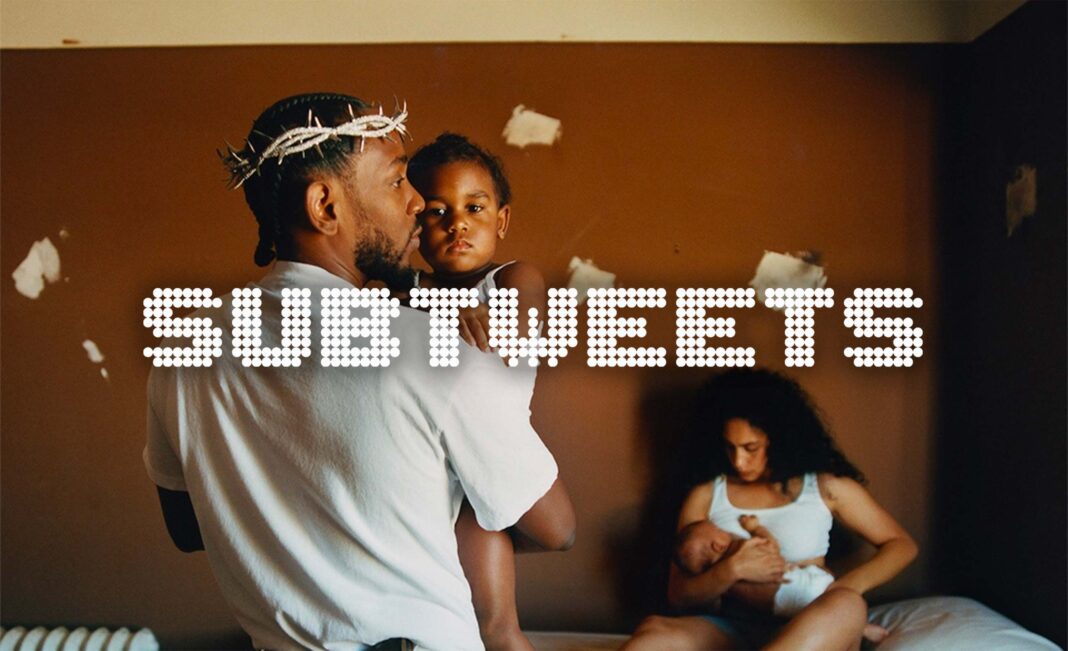Lately, I’ve been thinking a lot about how we equate intelligence with morality. When somebody is wrong – for example, expressing racist or homophobic views – we will often think that it is because they’re uneducated, or thoughtless and that we, the good ones, are comparatively smart. We don’t always stop to consider that those who disagree with us may be very intelligent indeed, in ways that need to be understood if they are to be rehabilitated.
As the old adage goes, you create greater reform by opening up dialogues rather than shutting people out. Because Kendrick Lamar is a “smart” rapper, we assume that he will think the same as us, that he will always do the “right”, progressive thing. We can dismiss a 6ix9ine or a DaBaby because their content and decorum have led us to assume that they are not exactly concerned with debating critical race theory or intersectional feminism. But in Kendrick, we have a star that we hold to higher standards. Elevated to near-mythic status, he has become the face of Black America, the anti-Kanye in his desire to focus on music over celebrity. He is what ‘real’ hip-hop fans listen to, what highbrow organisations like the Pulitzer Prize recognise. He is more than a rapper; he is a guiding force, one who can always be relied on for perfect eloquence and agreeable insight.
With all this in mind, it might be a bit of an understatement to say that anticipation was high for his fifth record. Delivered with a short promotional lead time (but after a five-year wait), ‘Mr Morale & The Big Steppers’ plays less like an album and more like an off-Broadway play, a therapist’s-office story arc that digs deep into lifelong trauma. It shares DNA with the soul of ‘good kid, m.A.A.Ad city” or the avant-jazz of ‘To Pimp A Butterfly’, but slows the music down so that each Polaroid really lingers, forcing you to focus on the storytelling. There is no ass-shaking ‘Humble’, no track that explicitly presents itself as the soundtrack of a revolution like ‘Alright’. You certainly won’t be hearing ‘We Cry Together’ on radio; the ‘fuck you”; “no, fuck you!” repetition of warring partners is powerful but definitively NSFW, quite triggering in its unbridled anger.
Building on his work on race, he weaves in gender and sexuality, mental health and abuse, infidelity and lust. On ‘Worldwide Steppers’, he admits to cheating on his fiancée with a white woman, fearing that he has invoked the wrath of his ancestors, while ‘Father Time’ explores the ultimate impact of suppressed emotion in Black masculinity. Its counterpoint, ‘Mother I Sober’ (featuring Beth Gibbons of Portishead) probes that wound even more deeply, examining the links between misogyny, grief, rap braggadocio and abuse cycles. It is not a comforting listen but is easily amongst his most profound lyrical work.
Elsewhere, Kendrick’s unbridled honesty is less empathetically received. Polarised fan discussion has centred around ‘Auntie Diaries’, a song about Kendrick’s Aunt’s transition that details his own path of understanding, moving away from thoughtless slurs to a position of allyship and solidarity. On one hand, the frequent repetition of the F-word slur (and the use of dead-naming) is brash, upsetting and potentially overdone, making its point a little too forcefully. On the other, he attempts something quite profound by owning his childhood confusion so openly, the delivery revealing clues to his clear contrition. Kendrick has the potential to play a huge role in unravelling the kind of casual transphobia that permeates unchecked, particularly in the Black community. He is whispered and apologetic, but also raw, unencumbered, realising what you must recognise within yourself before you can move away from it.
There are other pitfalls that are less easy to play devil’s advocate with. From the moment that we saw the video for ‘The Heart Part 5’, deep-faking his way through various Black celebrity men associated with scandal, we should have known that somebody of Kendrick’s nuance might have a problem with cancel culture, that he might have some controversial things to say. He pulls it off better than most, but the anti-cancellation stance that crops up across the record already feels a little tired, grating in its repetitive motifs.
For every Sampha, always welcome with his honey-butter vocals, there are also guest appearances from Kodak Black, a rapper who remains inexplicably popular and peer-protected in hip-hop despite being accused of violent sexual assault. On a record that offers broad themes of rehabilitation and redemption, I can understand what Kendrick thought he was doing by inviting him in, but Kodak adds very little to this record that could not be supplied by somebody more dexterous and more reputable, undermining the valuable work of a song like ‘Mother I Sober’.
Like life, ‘Mr Morale’ is messy. He says it himself on ‘Crown’ (“I can’t please everybody”), or on ‘Father Time’; “Guess I’m not mature as I think, got some healin’ to do”. It’s a record that means well, doesn’t always get it right, but still offers enough moments of honest intrigue that provide solid foundation for meaningful conversation. We may not be comfortable with the results, but we don’t have to like or approve Kendrick’s choices to recognise that they are coming from a man who did not make them by mistake. If our impression of Kendrick was the perfectly-progressive, always morally-upstanding bastion of conscious rap, ‘Mr Morale’ invites us to peel back those layers and reveal the fallible human that still exists inside. Kendrick’s interpretation of right and wrong may be different to the one you have assumed of him, but disagreeing with his methods does not mean that he is no longer a smart rapper. Rather, it serves to illustrate just how much grey exists between the Black-and-white boundaries of morality, how much more there still is for us all to work out. Choosing to learn, to be a good person, is not always easy, but it is necessary work, perhaps even more valuable to society than simply being born that way. If debate around ‘Mr Morale’ lowers Kendrick’s pedestal ever so slightly, it might well be the healthiest thing that could have happened to us all, reminding us of the value of our own ongoing growth. Nobody is above critique, and no morality journey is ever truly complete. Like Kendrick, we all just need to keep talking.
READ MORE: Are we overindulging Kanye West?







